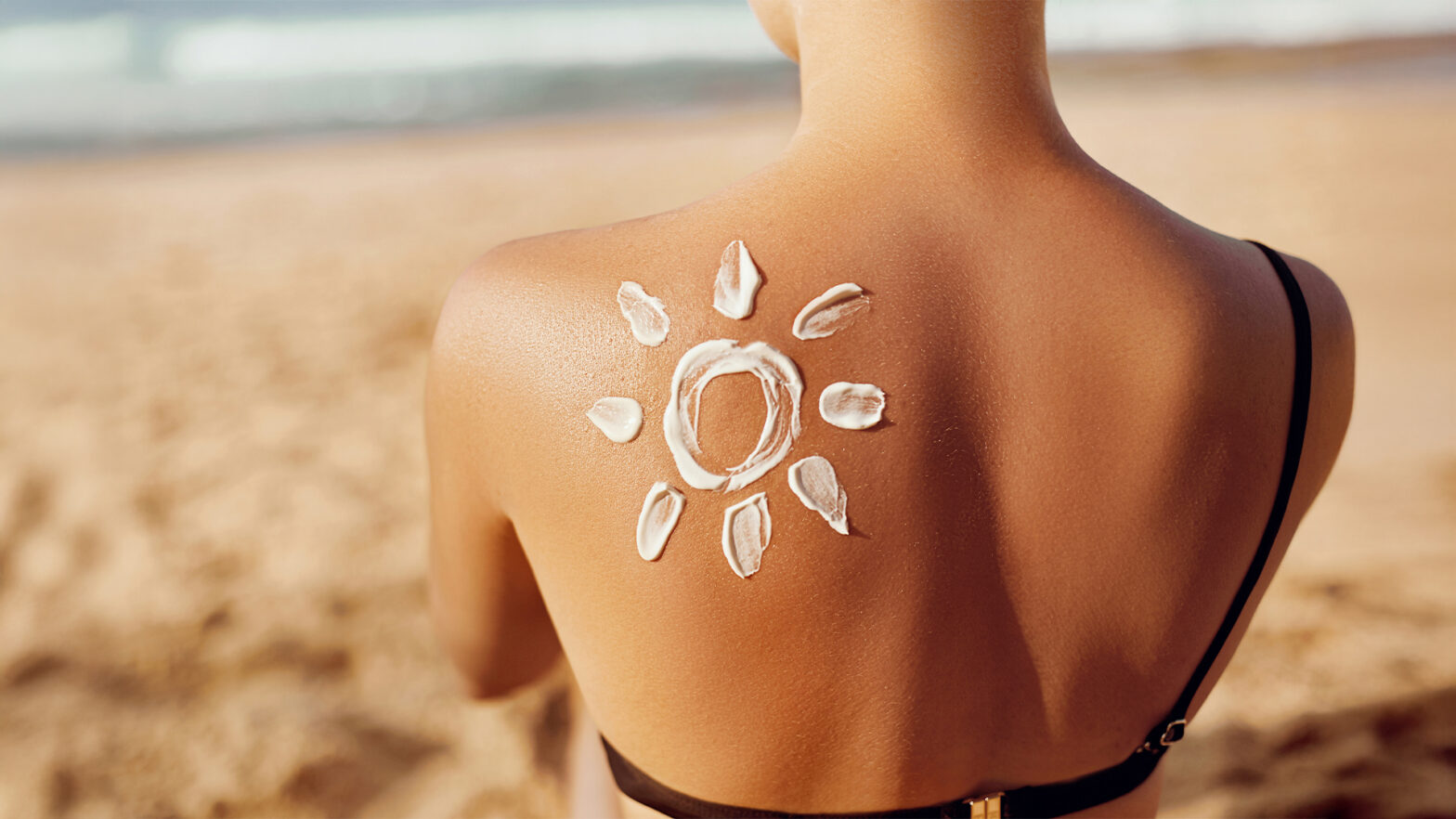
- Hoseasons and Childs Farm have teamed up for Sun Awareness Week 2025, with expert tips from Dr Anita.
- The campaign highlights why suncream is not just for abroad and how to protect your child’s skin in the UK heat.
As the summer season approaches and families prepare for UK staycations, holiday brand Hoseasons has partnered with gentle skincare pioneer Childs Farm to launch a new campaign for Sun Awareness Week 2025 (12-18 May). The joint initiative aims to raise awareness around sun protection at home in the UK and equip families with the facts they need to enjoy the sun safely. With an average of 60,500 monthly searches for ‘sunburn’, it’s clear that many people are actively seeking advice on sun protection.
At the heart of the campaign is Consultant Dermatologist Dr Anita, serving as Childs Farm’s campaign ambassador. Dr Anita brings years of clinical experience and evidence-based advice. She has shared her tips to help parents navigate common sun safety myths and gain a better understanding of the risks of UV exposure in the UK.
Staycationers take note, sunscreen is not just for abroad
For many, sunscreen is still something associated with beach days and trips abroad. But with more families than ever choosing to holiday in the UK, both Hoseasons and Childs Farm are keen to change that mindset. Whether you’re heading to the mountains of Ben Nevis or a woodland retreat in the Lake District, UV rays can still do damage.
‘I advise people to use sun protection every day, all year round, regardless of the weather. UV rays are present year-round and are responsible for about 80% of premature skin ageing, as well as increasing the risk of skin cancer,’ says Dr Anita. ‘Even on cloudy or cool days, UV rays can penetrate clouds and cause skin damage without you realising it.
The UV index can be checked through weather apps, online services, or government websites, it ranges from 0-11+. A value of 3 or higher signals a risk of harm from unprotected sun exposure.’
She adds that children should have sunscreen applied before school or nursery, especially if they’ll be playing outdoors. ‘Pack a hat and long-sleeved clothing too, these physical barriers can offer added protection when children are in and out of the sun.’
How to apply sunscreen the right way
Dr Anita recommends using the two finger rule of sunscreen to cover an adult’s body, and proportionally less for children depending on their size. ‘Apply a line of sunscreen along the length of your index and middle fingers and apply this to your face and neck,’ she advises. ‘The same can be done for other body areas such as each arm, upper and lower legs and upper and lower back.’
She also advises applying sunscreen 15–30 minutes before going outdoors to allow it to bind properly to the skin. ‘Don’t wait until you’re already outside and exposed. By the time you feel the heat, the damage may already be done.’
Dr Anita continues: ‘One of the biggest mistakes people make is not applying sunscreen generously enough and forgetting to reapply it throughout the day. It’s not a once-a-day activity, especially for children out in direct sunlight, swimming, sweating or towel drying.’
What SPF should families choose?
SPF stands for ‘Sun Protection Factor’ and measures the level of protection that a sunscreen provides against UVB rays.
‘For children over six months, I recommend fragrance-free SPF products, specifically formulated for sensitive skin,’ says Dr Anita. ‘The SPF 50+ sunscreens from Childs Farm are dermatologist approved, clinically proven to be gentle, fast-absorbing, water-resistant, and provide up to 24 hours of moisturisation.’
Another important factor is the star rating on sun care products. According to Childs Farm, SPF only tells you the level of protection against UVB rays, it’s also important to make sure you are picking a broad spectrum sun cream that also covers UVA rays too.
‘The UV star rating system shows how well a sunscreen protects against UVA rays, the more stars, the better the protection,’ explains Anita. ‘It’s important to look at both the SPF, which covers UVB, and the star rating for UVA. A high SPF alone isn’t enough if the star rating is low. For children, I recommend SPF 50+ with a 5-star rating.’
Gentle sun protection for delicate children’s skin
‘Children’s skin is thinner and more delicate than adults, which means they absorb more of the harmful effects of UV radiation,’ say Childs Farm’s in-house experts. This makes regular, reliable sun protection absolutely essential, whether they’re on a beach in Cornwall or playing in the garden at home.
They add: ‘Start children young with a sun protection routine. Applying sunscreen can be a fun, normal part of getting ready for the day. For wriggly children and on-the-go application outdoors, our Sun Spray can be a nice solution.’
Storing sunscreen the right way
Product care is another overlooked part of sun safety. Childs Farm advises families to use SPF within 12 months of opening.
Dr Anita agrees and urges parents to check expiry dates on all sun care products.
‘Check the expiry date and the ‘period after opening’ (PAO) date which tells you how long a product can be used after opening. Signs your sunscreen is no longer effective include changes in texture, colour or smell.’

Street-level sun knowledge
To understand just how much the UK public knows about sun safety, Hoseasons has filmed a special street vox pop during Sun Awareness Week. Spontaneous answers from passers-by reveal how and when they use sunscreen, what SPF means, and whether they think sun protection is needed in Britain.
Gemma Brown, General Manager at Hoseasons, comments:
‘We’re passionate about helping families make the most of their time together, and a big part of that is staying safe and comfortable outdoors, whatever the weather. If there’s one thing we can predict about the UK weather, it’s that it’s unpredictable! That’s why we always recommend packing for both sunshine and showers to make sure nothing gets in the way of a great time.
Our partnership with Childs Farm means we can offer meaningful, expert advice to help families enjoy the sunshine while staying prepared for whatever the skies bring. I use Childs Farm sunscreen for my children and really appreciate its texture and the protection it offers.’
Gemma adds, ‘We’ve seen time and again that a little preparation goes a long way. Whether it’s sunscreen or a raincoat, we want holidaymakers to feel confident, protected, and ready for anything so they can focus on what really matters: making happy memories together.’
To explore the full top tips on sun safety, please visit https://www.hoseasons.co.uk/blog/sun-safety-in-the-uk-for-families, https://www.hoseasons.co.uk/promotions/sun-awareness-week and https://www.instagram.com/p/DJjVOXqIpKQ/.

















